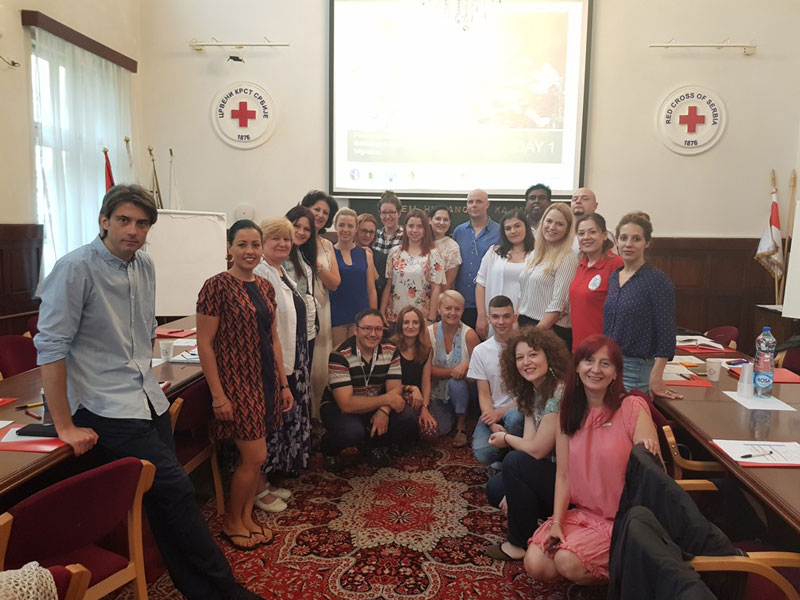Sexual and Gender Based ViolenceTraining for Trainers
Between 22 and 24 June in the Red Cross of Serbia Headquarters a training for trainers was organised focusing on Sexual and Gender Based Violence. The workshop was organised by the Red Cross of Serbia and International Federation of Red Cross and Red Crescent Societies with 20 participants from five National Societies. The main goal of the workshop was to improve knowledge and skills of the staff and volunteers of the Red Cross, to improve capacity, ensure exchange of experience and establish standards in working on Sexual and Gender Based Violence, which may lead to building more secure and resilient communities.
Since early 2016 some 180,000 migrants have reached Europe, mainly through Greece as well as Italy. Vast majority of them came from the countries with active armed conflict where the violence happened over several years and is still ongoing, thus causing intense migration. The Red Cross provides support and services to migrants and this includes psychosocial support services that are more and more needed along the migration route. The increasing percentage of women, children and young men in the migrating population also increases the need for psychosocial support services.
According to the data provided by HelpAge USA (affiliate partner of HelpAge International), there are over 65 million forcibly displaced people around the world, with anaverage displacement lasting for 26 years. This unprecedented number ofpeople dislocated due to war and persecution has increased by fifty percentin the last five years.
As the migration crisis continues, it is clear that more information is needed on Sexual and Gender Based Violence.
The workshop participants have over the three days of lectures and interactive work been trained to recognise Sexual and Gender Based Violence, have been strengthened and taught in which ways they can support the person surviving Sexual and Gender Based Violence. They were also explained how important it is to know the details about the functioning of support systems, so they can refer the person in need to the appropriate service.
In crises, there are certain population groups at higher risk. Children are often at the highest risk. Risks for children are defined through Minimum Standards for protection of Children in Humanitarian Interventions and they include: physical, sexual and psychological violence; neglect; injuries; harmful practices; including early and forced marriage; psychosocial distress and mental disorders; children linked to armed forces or armed groups; child labour; unaccompanied children and isolated children. Statistics from around the world show that the risks children face during and after disasters may increase, sometimes dramatically.
In addition, the participants also learned about other groups at higher risk: older persons, persons living with disabilities and LGBT population. As the Red Cross of Serbia is a leading National Society on the topics of ageing, older people and their access to human rights, a section of the workshop was focused on elder abuse. Demographicestimates suggest the number of older people in displacement all over the world is between 3 and 5 million.
The lecturers at the workshop were: Dr JeyathasanKulasingam, Health & Care delegate - Migration response, Shirin Namiq, Protection, Gender and Diversity Delegate, Regional Office for Europe, International Federation of Red Cross and Red Crescent Societies, Tina Tinde, Gender and Diversity Coordinator, Policy, Strategy and Knowledge (PSK) Department, Geneva International Federation of Red Cross and Red Crescent Societies. The section related to elder abuse was done by the Red Cross of Serbia associates Natasa Todorovic and Dr Milutin Vracevic.







